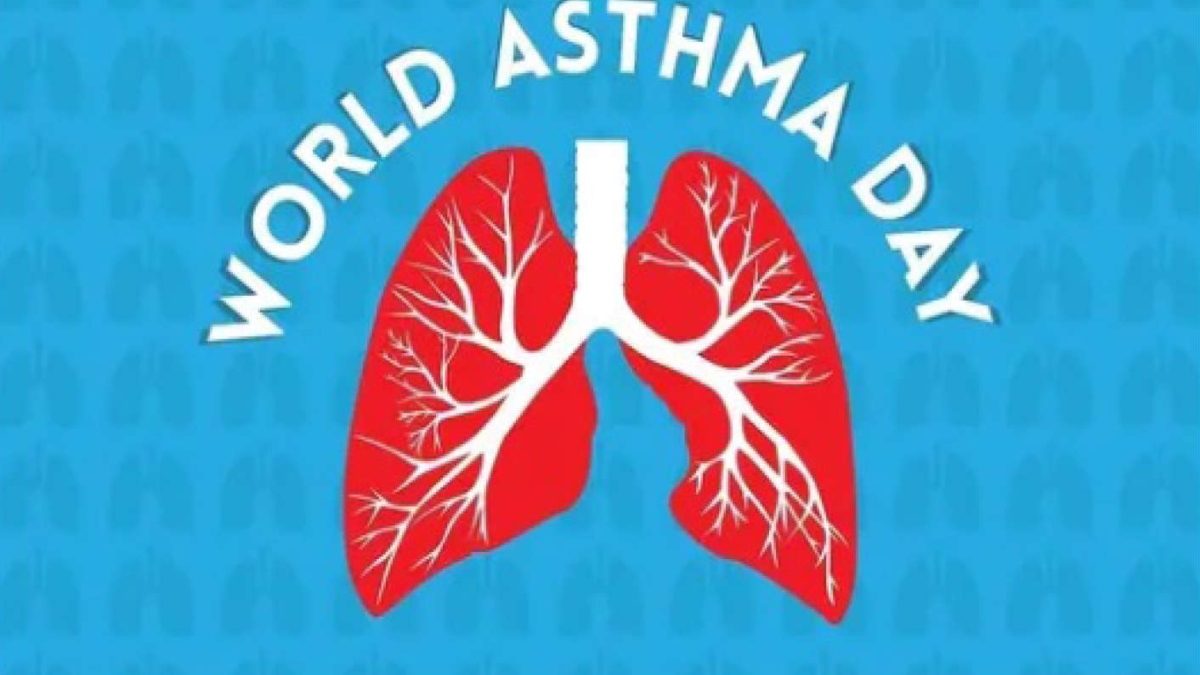


Asthma also called bronchial asthma, is a disease that affects the small airways of your lungs characterized by airflow obstruction that varies markedly both spontaneously and with treatment. Asthmatics harbor a special type of inflammation in the airways that make them more responsive than non-asthmatics to a wide range of triggers, leading to excessive narrowing and consequently reduced airflow and symptomatic wheezing and difficulty in breathing. This narrowing is usually reversible. Although asthma cannot be cured, it is possible to manage asthma to reduce and prevent asthma attacks, also called episodes or exacerbations.
HOW COMMON IS THIS CONDITION?
It is one of the most common chronic diseases with rising prevalence in developing countries with increased urbanization.
HOW DOES IT PRESENT ITSELF?
Asthma can present at any age, with a peak age of 3 years.
Those with mild asthma rarely progress to more severe disease, whereas those with severe asthma usually have the severe disease at onset.
Typical symptoms are wheeze, nighttime or early morning cough, chest tightness, and shortness of breath.
The extent of narrowing and how long it lasts, vary greatly.
WHAT IS AN ASTHMA ATTACK?
During an asthma attack, the sides of the airways in your lungs swell, and the airways shrink. Less air gets in and out of your lungs, and mucus your body produces clogs up the airways. The attack may include coughing, chest tightness, wheezing, and trouble breathing. Some people call an asthma attack an “episode.”
WHAT ARE THE RISK FACTORS AND TRIGGERS?
The disease is interplay between genetic and environmental factors.
Patients with asthma generally suffer from other atopic diseases, such as allergic rhinitis, and eczema. Atopy is a genetically determined production of specific IgE antibodies, with many patients showing a family history of allergic diseases.
Viral infections are common triggers of asthma exacerbation
Diets low in antioxidants such as Vitamin C, Vitamin A, magnesium, selenium, omega 3 fats, Vitamin D deficiency are associated with an increased risk of asthma
Air pollutants such as sulfur dioxide, diesel particulates may trigger
Smoking and cigarette fumes
Allergens- house dust mites, pollens, fungal spores, cockroaches
Occupational exposure to many chemicals- where symptoms typically improve during weekends and holidays
Obesity-asthma occurs more frequently in obese people and is more difficult to control
Cold air, exercise, stress could be triggers
Hormones: Premenstrual worsening of asthma which can occasionally be very severe, hypothyroidism or hyperthyroidism both can worsen asthma
HOW IS ASTHMA DIAGNOSED?
The healthcare provider takes a detailed medical history, and will ask you questions about whether you cough a lot, especially at night, and whether your breathing problems are worse after physical activity or during a particular time of year. They will also ask about other symptoms such as
Chest tightness, wheezing, and colds that last more than 10 days. They will ask you whether your family members have or have had asthma, allergies, or other breathing problems, and they will ask you questions about your home. They will also ask you about missing school or work and about any trouble you may have doing certain activities.
PHYSICAL EXAMINATION
Two commonly used tests are spirometry and assessment with a peak flow meter
Spirometry measures the largest amount of air you can exhale or breathe out using a spirometer. An improvement in the value after treatment to open up the airways is typical of asthma
TREATMENT OF ASTHMA
Aim of asthma therapy:
Minimal or no chronic symptoms
Infrequent exacerbations
Minimal or no use of B2 agonist inhaler
No limitations on activities including exercise
Minimal or no adverse effects from medicine
The best way to manage asthma is to avoid triggers, take medications to prevent symptoms, and prepare to treat asthma episodes if they occur.
DRUG THERAPY
1. Quick relief: Drugs that relax the airway muscles and relieve symptoms rapidly- are termed bronchodilators. This is either as an inhaler or a rotahaler.
2. Long term control: Drugs that inhibit the underlying inflammatory process- termed Controllers help you have fewer and milder attacks, but they don’t help if you’re having an asthma attack
3. Biologic therapies are used for severe asthma when symptoms persist despite proper inhaler therapy
You may breathe in the medicines using a metered-dose inhaler, nebulizer, or another type of asthma inhaler or may prescribe oral medications that you swallow.
WHAT SHOULD I DO IF I HAVE A SEVERE ASTHMA ATTACK?
If you have a severe asthma attack, you need to get immediate medical care.
The first thing you should do is use your rescue inhaler. A rescue inhaler uses fast-acting medicines to open up your airways. It’s different from a maintenance inhaler, which you use every day. You should use the rescue inhaler when symptoms are bothering you and you can use it more frequently if your flare is severe.
If your rescue inhaler doesn’t help or you don’t have it with you, go to the emergency department if you have:
Anxiety or panic.
Bluish fingernails, bluish lips (in light-skinned people), or grey or whitish lips or gums (in dark-skinned people).
Chest pain or pressure.
Coughing that won’t stop or severe wheezing when you breathe.
Difficulty talking.
Pale, sweaty face.
What should I know about covid-19 and asthma?
If you have moderate-to-severe asthma, or if your asthma symptoms aren’t well controlled, you’re at greater risk of being hospitalized if you get covid-19.
Therefore, you should wear a mask if you go to indoor spaces with other people, get vaccinated, and avoid exposure to people who have the virus. Many people live fulfilling lives with asthma. Some professional athletes with asthma have set records in their sports. Your doctor can help you find the best way to manage your asthma. Yoga and breathing exercises are important alternative treatments of asthma.
The author is Founder and Chief Laparoscopic Surgeon, Infertility Specialist, and Uro-Gynaecologist, Altius Hospital, Bengaluru.